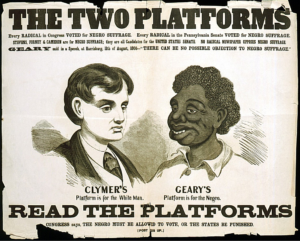Updates:
- RNC Attendees taunt and disrespect Puerto Rican woman
- RNC Attendees Threw Nuts At Black CNN Camerawoman, Said ‘This Is How We Feed Animals’
- Mitt Romney’s awkward “free stuff” comment regarding the NAACP
- Racist Google searches highest in areas where Obama did poorly in 2008.






